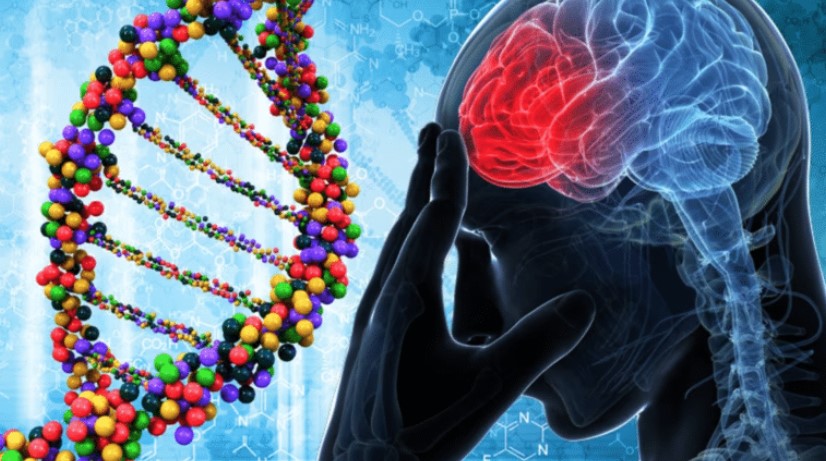Gene therapy for “ending addiction”? What could possibly go wrong with that? This article explains: “Re-engineering the brain to try and alter human behaviour has begun to emerge as a new frontier in medicine.” Beware: this knife cuts in both directions. — Technocracy News & Trends Editor Patrick Wood
By: David Cox via The Telegraph
Ohio State University professor Krystof Bankiewicz never imagined that he’d find himself working with alcoholic monkeys. Yet, through his research into Parkinson’s disease, he began to realise that – thanks to these monkeys – he might have a unique window into the brain pathways of addiction and ways of reshaping them for the better.
“I strongly believe that we have to view all brain disorders, such as addictions, through the lens of different wiring,” he says. “The brain is incredible at organising connections, but certain individuals are more predisposed to being wired in certain ways.”
Both Parkinson’s and addictions are intrinsically linked to a substance called dopamine, often known as the pleasure chemical. Activities such as sex, drinking, taking illicit drugs, winning £10 on a slot machine or watching pornography all flood the brain with surges of dopamine, creating a desire to repeat the experience.
Some people are particularly susceptible to swiftly becoming dependent on these dopamine surges, which can subsequently develop into an addiction. When these behaviours turn into chronic habits, the brain starts to produce less and less dopamine each time, which is why addicts often explain that their drinking or drug use does not actually provide them with any pleasure.
Parkinson’s, a disease which gradually kills off dopamine-producing cells in the brain, is very different, but many of the latest therapeutic approaches utilise ingenious ideas for replacing the lost dopamine. One particular therapy being studied involves delivering the gene for a protein called glial-derived neurotrophic factor (GDNF) into the brain, which then encourages dopamine production.
Bankiewicz began to wonder whether delivering GDNF to brain areas associated with addiction and reward through gene therapy, could help reset the dysfunctional pathways seen in alcoholics back to normal. To prove it, he took macaque monkeys, who share the same human weakness for alcohol, and plied them with a monkey-friendly solution which was similar in strength to beer. Four alcoholic macaques were then given the GDNF therapy, with swift results.
“It was responsible for a complete cessation of alcohol interest in these animals,” says Bankiewicz. “They were also no longer interested in sugary drinks or even eating excessively, while the monkeys who didn’t receive the therapy kept drinking more and more.”
The study, which was published in the journal Nature Medicine last month, has created the hope that it could one day represent a solution to alcohol use disorder, which remains a major social problem around the world. Alcohol misuse remains the biggest risk factor for death, disability and ill health among those aged between 15 and 49 in the UK and was associated with 20,970 deaths among all age groups in 2021.
Bankiewicz suggests it could also be used as a solution to other severe addictions, for example opioid addiction. “Alcohol addiction is a huge social issue as 90 per cent of sufferers currently relapse and some of them are incredibly severe cases,” he says. “I think this is perhaps where gene therapy could be justified.”
Mutated genes
Re-engineering the brain to try and alter human behaviour has begun to emerge as a new frontier in medicine, particularly given the limitations of traditional psychotherapies as addiction treatments. While cognitive behavioural therapy is currently considered the gold standard for the treatment of alcohol use disorder, more than 60 per cent of patients relapse within the first year.
One of the reasons for this is that, while destabilising life events such as trauma can contribute to the onset of addictions, research has increasingly shown that they also have a genetic origin. Various genes active in the brain can create innate urges which are difficult to resist, once vulnerable people are exposed to vices such as gambling, nicotine or other addictive substances. “Our genes influence our dispositions, which influence our natural tendencies, which make some people more likely to experience problems,” says Danielle Dick, a psychiatry professor at Rutgers University in New Jersey and author of the book The Child Code.
Sourced from Technocracy News & Trends
Image: QIMR Berghofer Medical Research Institute
Become a Patron!
Or support us at SubscribeStar
Donate cryptocurrency HERE
Subscribe to Activist Post for truth, peace, and freedom news. Follow us on SoMee, Telegram, HIVE, Flote, Minds, MeWe, Twitter, Gab, and What Really Happened.
Provide, Protect and Profit from what’s coming! Get a free issue of Counter Markets today.


Be the first to comment on "Scientists Re-Engineer The Brain To Alter Human Addiction"